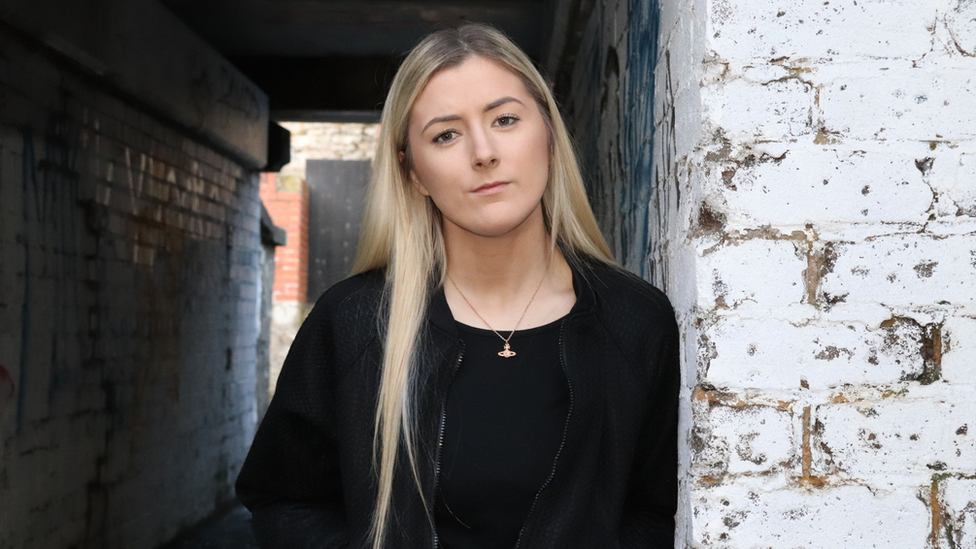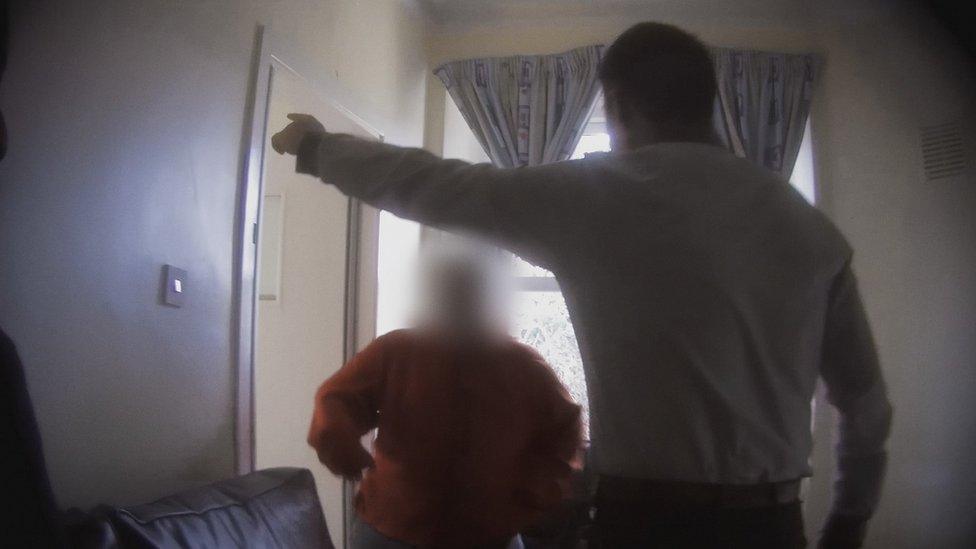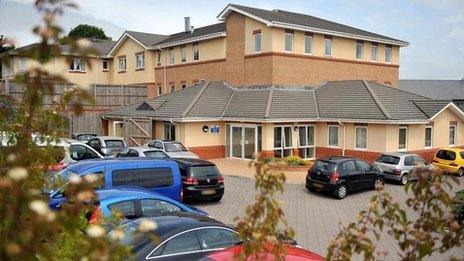Whorlton Hall hospital abuse and how it was uncovered
- Published
Undercover BBC filming shows staff swearing, mocking and taunting patients with autism and learning disabilities
Eight years ago I worked with a team at BBC One's Panorama programme to reveal terrible physical abuse at a hospital for vulnerable adults on the outskirts of Bristol, called Winterbourne View.
People with learning disabilities or autism were filmed by our undercover reporter being kicked, punched, mocked and mistreated by people paid to care for them.
As the producer of that film, I worked with whistleblowers to gather evidence, hired the undercover reporter and oversaw his filming.
Nearly a dozen people who had worked at Winterbourne View were prosecuted afterwards as a result of our evidence. The abuse was terrible, as was the betrayal of trust.
After our film was broadcast, the then Prime Minister David Cameron, the then minister for care, Norman Lamb, and the Conservatives, Labour and the Liberal Democrats committed to shutting specialist hospitals and moving people closer to their families.
That should have been the moment that the lives of thousands of people with learning disabilities or autism, whose behaviour some services struggle with, changed forever.
Instead, though, we have been told that the political promise has been first watered down and then broken.
Nearly 2,300 people with learning disabilities or autism are still in such hospitals, often far from home and for much longer than is appropriate.
Hospitals are not places where people should live - and yet today they still are.
'Psychological torture'
Last year, a series of new whistleblowers approached BBC Panorama, complaining about the culture, attitude and behaviour of a group of care workers at a different hospital for vulnerable adults, called Whorlton Hall in County Durham.
They told us that care workers were bullying and mistreating patients.
That sort of behaviour should never happen in any hospital, and certainly not after all the promises that were made after Winterbourne View.
Worse, eight years ago Whorlton Hall, which is privately-run but NHS-funded, had been owned by the same company as Winterbourne View.
One of the families affected by Winterbourne View told us they were shocked a hospital which used to be part of the same group could also be abusive.

Olivia Davies went undercover to investigate the allegations
I contacted a talented young journalist named Olivia Davies who had already been undercover twice for the BBC.
I asked if she would be prepared to work inside the hospital as a care worker while also, at the same time, gathering evidence for the BBC.
Olivia agreed and worked 12-hour shifts, often back to back, over more than two months, wearing a camera hidden in her top.
The patients whose care - and too often neglect or cruelty - that Olivia documented are some of the most vulnerable but also challenging people in the country.
Olivia loved spending time with the patients, but that made her unusual among the staff at Whorlton Hall, most of whom seemed to ignore the people they are paid to care for.
Too many care workers actively aggravated, tormented and talked about patients in the most appalling ways.
The taunting and deliberate winding up of patients was almost unbearable to witness, as was the language and attitude.
Experts who reviewed our footage said that in one case what Olivia had filmed was evidence of psychological torture. Another patient was frequently deliberately provoked by staff.
Olivia witnessed patients being physically restrained.
Something that should only be a last resort is used too often and NHS figures show that its use is increasing.
The practice of holding distressed people down, often on the floor and sometimes for long periods of time, is horrible to witness and even worse to endure.
'Shocked and saddened'
It shouldn't have happened again. The government should have fixed these issues, eight years ago.
We asked Health Secretary Matt Hancock for an interview about the wider issues, but his press office told us: "We treat any allegations of abuse with the utmost seriousness.
"Durham Constabulary are now leading a criminal investigation into the allegations and we cannot comment on the investigation while it is ongoing. Steps have been taken to ensure the safety of residents at Whorlton Hall.
"Autistic people and those with learning disabilities should receive the best possible care and be supported to live in their communities.
"We are working to ensure more people return home from hospital as soon as their treatment has finished and significant investment in community support has already led to a 22% reduction in these mental health inpatient numbers since 2015."
Cygnet, the company which now owns Whorlton Hall, said: "We are shocked and deeply saddened by the allegations made against members of staff at Whorlton Hall, part of the Danshell Group, which Cygnet recently acquired.
"We take these allegations extremely seriously. We have suspended all the members of staff involved, simultaneously informed all relevant authorities, including the police, who have now instigated an inquiry and we are co-operating fully with their investigation.
"We have taken the initiative of transferring all the patients to other hospitals.
"The safety and care of our patients and residents is of paramount importance and we have zero tolerance of unprofessional conduct towards them.
"Those implicated in this programme have betrayed not only some of society's most vulnerable people but also the thousands of people at Cygnet who work daily with dedication and compassion to look after the people in their care.
"This appalling behaviour is entirely inconsistent with Cygnet Health Care's values and high standards and we remain absolutely committed to delivering the highest quality healthcare, which our patients and residents expect and deserve."
- Published22 May 2019

- Published10 December 2012
